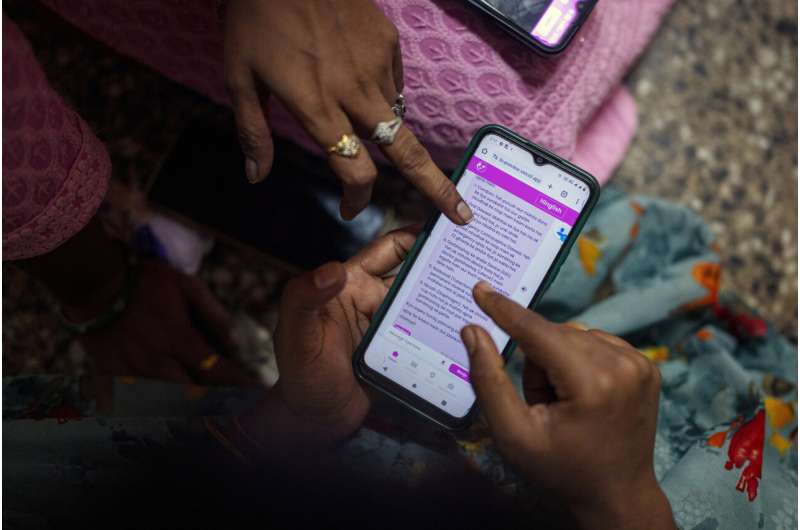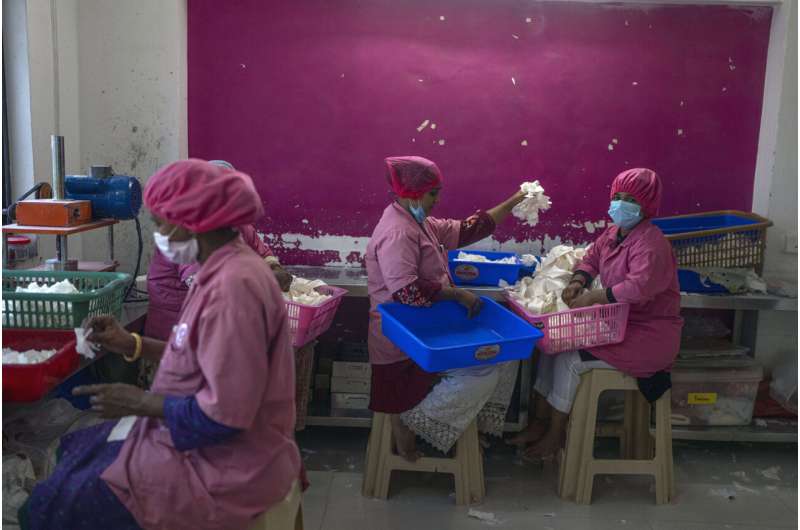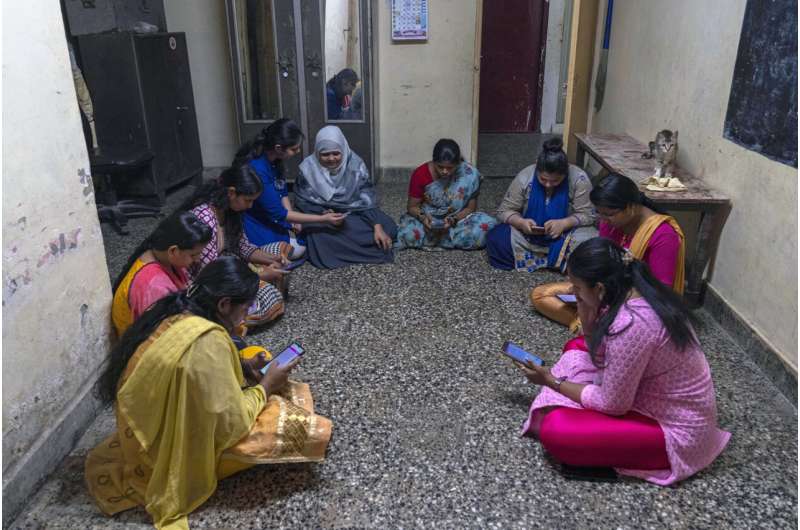
Komal Vilas Thatkare says she doesn't have anyone to ask about her most private health questions.
"There are only men in my home—no ladies," said the 32-year-old mother and housewife in Mumbai. "I don't speak to anyone here. So I used this app as it helps me in my personal problems."
The app she uses is powered by artificial intelligence running on OpenAI's ChatGPT model, that Myna Mahila Foundation, a local women's organization, is developing. Thatkare asks the Myna Bolo chatbot questions and it offers answers. Through those interactions, Thatkare learned about a contraceptive pill and how to take it.
Thatkare is one of 80 test users the foundation recruited to help train the chatbot. It draws on a customized database of medical information about sexual health, but the chatbot's potential success relies on test users like Thatkare to train it.
The chatbot, currently a pilot project, represents what many hope will be part of the impact of AI on health care around the globe: to deliver accurate medical information in personalized responses that can reach many more people than in-person clinics or trained medical workers. In this case, the chatbot's focus on reproductive health also offers vital information that—because of social norms—is difficult to access elsewhere.

"If this actually could provide this nonjudgmental, private advice to women, then it could really be a gamechanger when it comes to accessing information about sexual reproductive health," said Suhani Jalota, founder and CEO of the Myna Mahila Foundation, which received a $100,000 grant from the Bill & Melinda Gates Foundation last summer to develop the chatbot, as part of a cohort of organizations in low- and middle-income countries trying to use AI to solve problems in their communities.
Funders like the Gates Foundation, the Patrick J. McGovern Foundation and Data.org, are seeking to build up this "missing middle" in AI development, especially in areas like health and education. These philanthropic initiatives offer developers access to AI tools they otherwise could not afford so they can solve problems that are a low priority for corporations and researchers—if they are on their radars at all—because they don't have high profit potential.
"No longer can the global north and high-income countries drive the agenda and decide what does and does not need to be addressed in local communities in the global south," wrote Trevor Mundel, president for global health at the Gates Foundation in an October online post, adding, "We cannot risk creating another chasm of inequity when it comes to AI."

The Associated Press receives financial support for news coverage in Africa from the Bill & Melinda Gates Foundation.
The Myna Mahila Foundation recruited test users like Thatkare to write real questions they have. For example, "Does using a condom cause HIV?" or "Can I have sex during periods?" The foundation's staff then closely monitor the chatbot's responses, developing a customized database of verified questions and answers along the way that helps improve future responses.
© 2024 The Associated Press. All rights reserved. This material may not be published, broadcast, rewritten or redistributed without permission.
Citation: How AI health care chatbots learn from the questions of an Indian women's organization (2024, February 22) retrieved 22 February 2024 from https://techxplore.com/news/2024-02-ai-health-chatbots-indian-women.html
This document is subject to copyright. Apart from any fair dealing for the purpose of private study or research, no part may be reproduced without the written permission. The content is provided for information purposes only.
